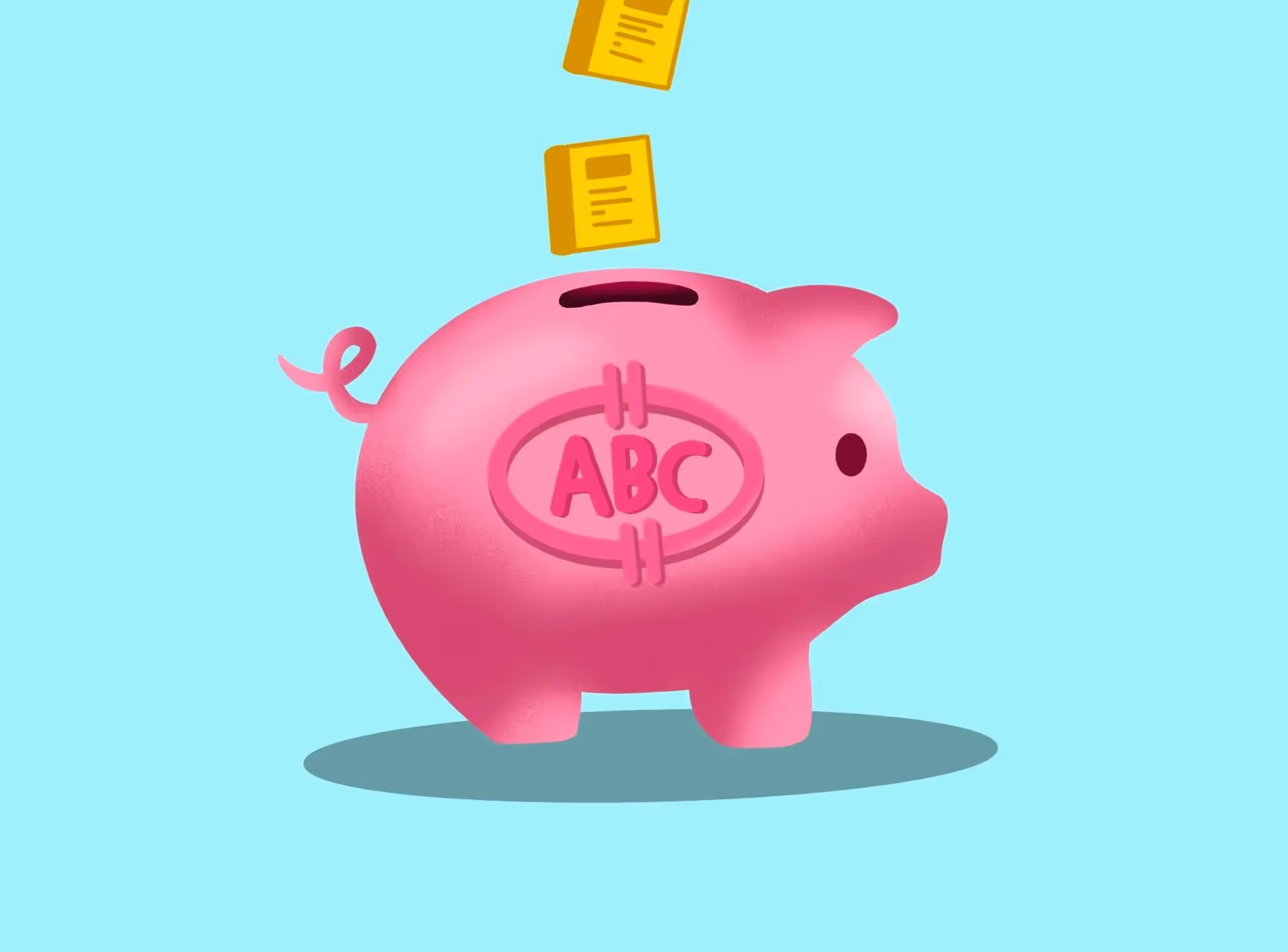


Key Takeaways
- Understanding ABC: The Academic Bank of Credits (ABC) enables students to accumulate and transfer academic credits across institutions, preventing loss of progress during transfers and promoting academic flexibility.
- Functionality: ABC supports credit redemption for completed projects or coursework and allows seamless transitions between institutions, fostering student mobility and continuity in education.
- Key Features: ABC offers customizable learning paths, flexible course schedules, online assessment mechanisms, and anytime-anywhere access, enhancing the learning experience.
- Benefits: Students can resume studies after breaks, pursue education from any location, and have their achievements recognized globally, democratizing access to quality education and fostering lifelong learning.
No doubt you’ve heard of the academic bank of credits, or ABC as we call it. Maybe you’re even confused about what exactly ABC is. Are they classes? Are they tests? Do you need to get a physical, academic bank of credits card to use them? I am here to clear up the confusion and explain what the academic bank of credits are and how you can use them.
You probably already know that all high schools follow some credit system or will figure one out soon. Different schools operate with varying ways of counting and assigning these credits. Some are very straightforward with their way of handing out credits. Others can be a bit complex. This blog post aims to make it easy for you to understand how ABC works inside your school.
The primary purpose of this article is to give you an insight into the academic bank of credits. Since credit is one of the most critical aspects of your college experience, we, therefore, want to help you understand what all there is to know about it. The world of college includes all sorts of information that might be confusing. Still, with our new guide, we will help you understand and use the benefits associated with it by providing you with the Academic Bank Of Credit Explained. The University Grants Commission (UGC), one of the statutory organizations, is a key player in maintaining the quality of education across Indian institutions. Right from evaluating teaching-learning practices to bringing innovations in the field of education, UGC introduces various schemes from time to time for quality assurance. UGC has introduced the “Academic Bank of Credits” (ABC), fulfilling another significant responsibility. It helps faculty to manage & check the credits earned by students.
What is ABC (Academic Bank of Credits)?
An Academic Bank of Credits (ABC) is an academic structure in which students can obtain credits by doing academic work in subjects previously taught instead of being taught the same subjects repeatedly. Schools will often offer an accredited grading system or allow students to undergo work experience to obtain credits.
Do you want to get more credits in your degree program?
ABC(Academic Bank of Credits)India is a government-recognized agency that can help you get academic credits for your work and will do in the future. In other words, it will issue credit certificates for your quality work. The best part about ABC is that it does not charge any fees for issuing these certificates; it is only for the students, and hence, it comes without any fee at all.
You are trying to understand what ABC does and how it works? Here’s what you need to know: Let’s say you have completed a project or wrote an article on a topic related to your degree program. Well, now this work can be turned into academic credit with the help of ABC. So, if you have submitted any project or paper before and considered good quality, then ABC can issue a certificate that will award you academic credit for them. And as we said before, all these services are free of cost!
How does the ABC (Academic Bank of Credits) work?
Academic Bank of Credits (ABC) is a term that higher education institutions more often use in the European Union than in the United States. However, it can be an effective strategy for increasing students’ chances of transferring credit from one institution to another.
Developed as a result of collaboration between the Bologna Process and the European Credit Transfer System (ECTS), ABC is primarily intended to facilitate mobility between institutions within member nations of the European Union. The intention is to provide students with a “bank” from which they can transfer or redeem credits from any institution that complies with the standards set by the ECTS, regardless of the country within which it is located. In this way, students can increase their chances of transferring credit between participating countries and institutions. And, now we have this in India! For example, I have been part of an autonomous college A for the past three years for my undergraduate course work. Autonomous college, which means that it’s a private college affiliated with the government university. This means that the college can decide what our subjects were and what content should be included in the course. Then the college gets approval from the Government university to verify it. (Of course, this is only one of the many things that autonomous institutions stand for. But, to understand ABC this little bit is important.)
Now, if somewhere in those three years I wanted to shift to college because my family was relocating, to say another private or government-owned educational institution, College B or College C. Let’s say I was at the end of my second year of the three years course at College A; I would have to start from scratch in the first year, in college B or College C. I would have to start all over again from the first year, no matter what stage of the course I’m in.
This would waste my two educational years, and I couldn’t shift to college because I was relocating. Now, because of ABC, students don’t have to waste their precious educational time and can easily change colleges without starting from scratch. The ABC has allotted a credit system, wherein students can earn credits for their course works, and when they shift institutions, they can carry forward these credits.
The ABC (Academic Bank of Credits) India is a credit transfer scheme that enables students to earn credits from higher education institutions and enjoy long-term continuity of their academic careers. A Credit Transfer System is a mechanism that allows a student who is enrolled in one institution to transfer their credits earned towards the completion of a degree program to another institution. The credit transfer system facilitates the transfer/redemption of credits awarded to a student for one program from an institution that may be transferred/redeemed by another institution upon the student's consent.
A student can utilize their credits earned at one university to complete or continue their studies in another university. This facility is offered by the National Credit Transfer and Accumulation System (NCATS), designed by the Indian Government as part of its policy on Education Reforms.
A brief about the ABC
In the present scenario, students are not aware of this provision, and if they are aware, they do not know how to go about it. The scheme is still in its infancy, but the Department of Higher Education has encouraged universities and colleges to set up the ABC either at their level or in association with other institutions.
The scheme is mainly aimed at facilitating students to secure admission to undergraduate/postgraduate programmes within India and abroad. However, the scheme does not provide credit recognition for courses already completed/attempted by students. Students can avail themselves of this facility only once, that is, during their lifetime. The second institution will make the decision to accept credits earned at one institution towards another based on the equivalence of courses offered by both institutions concerned and the number of credits earned by a student in each course. The decision will be made after obtaining written consent from the student concerned. This system was developed due to the National Students’ Union’s long years of experience in education to provide a student-friendly and highly efficient credit accumulation and redemption system for all academic institutions in India. The idea behind this system is to provide a mechanism for students across India to accumulate and redeem their academic credits so that they get the best out of their academics.
The National Students’ Union, has many years of experience managing student representative councils in more than 900 colleges across India. The Academic Bank Of Credits system will be available to all educational institutions registered with NSU. The Academic Bank Of Credits has been designed so that it can be used by a large number of users simultaneously; it will also ensure confidentiality and security of transaction details and information. Over 10 million students are expected to benefit from this Credit Transfer System.
Key Features of ABC (Academic Bank of Credits)
The Academic Bank of Credit (ABC) India is an e-learning initiative. The project has been established in a collaboration between the IIT Bombay and the Tata Institute of Fundamental Research (TIFR) to promote self-learning among students. It aims at providing interactive resources, tutorials and study material to students all over India.
The Academic Bank of Credit (ABC) India provides the following features:
- Anytime anywhere learning: Students can access these materials from any location, but they have to follow the pre-decided schedule for each subject.For example, if a student needs to complete his Physics paper in four months, he can choose any time for accessing the study material. Still, he has to complete all the lessons within four months only, after which he will not be able to access that particular course again.
- Both experimental papers and theoretical papers are available on this website.
- There is no evaluation process; instead, it's an assessment process because students can assess their answer sheets before submitting them to their evaluator. Students have to submit assignments online and get their scorecards online as well. They get graded according to their performance in the assignments.
- For every field of study, there are semester wise courses with exam dates. The students are allotted credits depending upon the duration of each course and can register for the next level program. The number of credits a student has to clear before moving ahead to the next level is decided by them.
- With multiple entries and exit points in any given program, students can enter into ABC any time during the year. They have a choice to exit or continue their learning at any point of time during the year.
- In short, this system enables the student to learn anytime, anywhere at their own pace. Moreover, they do not need to be physically present in a classroom to take classes. The virtual classrooms enable live class streaming from anywhere via an internet connection.
Benefits of ABC (Academic Bank of Credits)
Today, with the Academic Bank of Credits (ABC) India, every student can access courses from any part of India without being restricted by geographical location. It is a beneficial option for those who wish to study in another city or state or even out of the country but are afraid to leave because they would lose their hard-earned credits. With Academic Bank of Credits (ABC) India, geographical boundaries are eliminated. One can continue one’s graduation or post-graduation course from anywhere in India as long as there is internet available.
A student can even take a break from studies and resume anytime later to complete their studies successfully with Academic Bank of Credits (ABC) India.
Academic Flexibility and Mobility
ABC India will allow students to choose their learning path, schedule, and pace of learning. Students can learn from anywhere at their convenience and comfort with the help of quality content provided by top universities worldwide. ABC India gives freedom to students to choose courses based on their interests.
Students’ Learning Achievements
Through ABC India’s platform, students can obtain recognition for their academic achievements from different universities worldwide. Students who complete any course through ABC India’s network of universities are eligible for academic credits/certificates awarded by top global organizations such as the University of London, MIT, Yale University etc. This would enable them to take admission to any renowned university or institution without retaking entrance exams.
Conclusion
Academic Bank of Credits (ABC) is a new educational initiative launched in India. Students will have access to quality education at an affordable price, and they can choose the best time and place for learning based on their convenience. Higher education institutions will recognize the courses offered, and students can choose their learning path, schedule, and pace.
Suppose the vision of ABC is to come true. In that case, it will be a success in terms of affordable education being made accessible to the majority of India’s population. Still, it will also bring revolutionary changes in the field of education. Contrary to the existing practice, such a self-directed learning environment will not be based on tracking or streaming but will allow continuous learning at one’s own pace. Students can plan their study hours and requirements round the clock according to their calendar. This flexible approach of ABC will be beneficial for many students who cannot adapt themselves to an academic environment based on set timings and fixed classes.
Historically, education in India was very rigid in its approach. The classroom was the only place where students could learn, even though it did not necessarily mean that everyone would absorb everything taught. The examination, grading, and promotion system were so rigid that students were often forced to memorize things they had no interest in or knowledge of. However, thanks to digitalization, the academic world has also seen some changes in the academic curriculum. Education is the platform through which we can pull our society out of poverty. Suppose we can provide education to the underprivileged and disadvantaged at a cost that does not strain their families. In that case, we can help empower our children for brighter futures and better lives for them and their communities. In my view, ABC could create conditions for students to participate in an online education revolution that redefines higher learning in India.
The academic world has many problems that need to be fixed. I would love to be a part of something like ABC, where I could fix those issues and create innovative solutions for the future of education.
Tutors Edge by EdisonOS
in our newsletter, curated to help tutors stay ahead!
Tutors Edge by EdisonOS
Get Exclusive test insights and updates in our newsletter, curated to help tutors stay ahead!
Recommended Reads
Recommended Podcasts












.png)
.webp)
